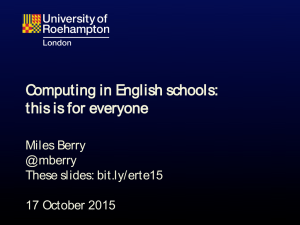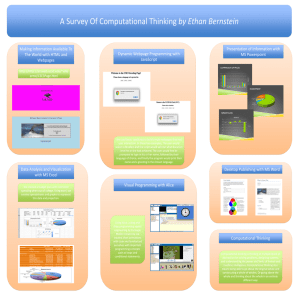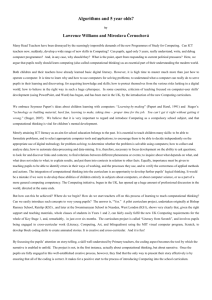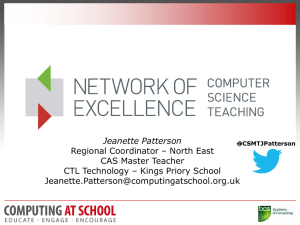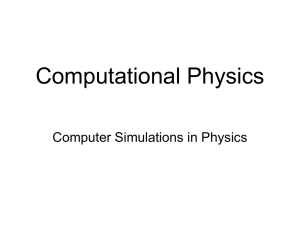Scratch Maths Information - Heathbrook Primary School
advertisement
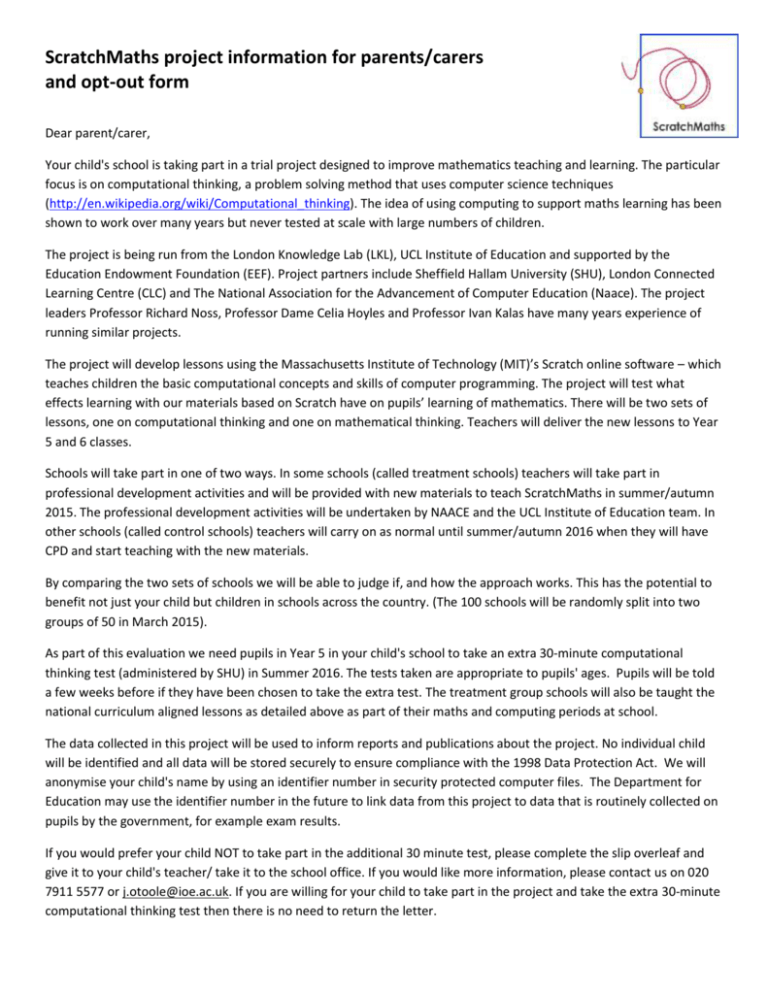
ScratchMaths project information for parents/carers and opt-out form Dear parent/carer, Your child's school is taking part in a trial project designed to improve mathematics teaching and learning. The particular focus is on computational thinking, a problem solving method that uses computer science techniques (http://en.wikipedia.org/wiki/Computational_thinking). The idea of using computing to support maths learning has been shown to work over many years but never tested at scale with large numbers of children. The project is being run from the London Knowledge Lab (LKL), UCL Institute of Education and supported by the Education Endowment Foundation (EEF). Project partners include Sheffield Hallam University (SHU), London Connected Learning Centre (CLC) and The National Association for the Advancement of Computer Education (Naace). The project leaders Professor Richard Noss, Professor Dame Celia Hoyles and Professor Ivan Kalas have many years experience of running similar projects. The project will develop lessons using the Massachusetts Institute of Technology (MIT)’s Scratch online software – which teaches children the basic computational concepts and skills of computer programming. The project will test what effects learning with our materials based on Scratch have on pupils’ learning of mathematics. There will be two sets of lessons, one on computational thinking and one on mathematical thinking. Teachers will deliver the new lessons to Year 5 and 6 classes. Schools will take part in one of two ways. In some schools (called treatment schools) teachers will take part in professional development activities and will be provided with new materials to teach ScratchMaths in summer/autumn 2015. The professional development activities will be undertaken by NAACE and the UCL Institute of Education team. In other schools (called control schools) teachers will carry on as normal until summer/autumn 2016 when they will have CPD and start teaching with the new materials. By comparing the two sets of schools we will be able to judge if, and how the approach works. This has the potential to benefit not just your child but children in schools across the country. (The 100 schools will be randomly split into two groups of 50 in March 2015). As part of this evaluation we need pupils in Year 5 in your child's school to take an extra 30-minute computational thinking test (administered by SHU) in Summer 2016. The tests taken are appropriate to pupils' ages. Pupils will be told a few weeks before if they have been chosen to take the extra test. The treatment group schools will also be taught the national curriculum aligned lessons as detailed above as part of their maths and computing periods at school. The data collected in this project will be used to inform reports and publications about the project. No individual child will be identified and all data will be stored securely to ensure compliance with the 1998 Data Protection Act. We will anonymise your child's name by using an identifier number in security protected computer files. The Department for Education may use the identifier number in the future to link data from this project to data that is routinely collected on pupils by the government, for example exam results. If you would prefer your child NOT to take part in the additional 30 minute test, please complete the slip overleaf and give it to your child's teacher/ take it to the school office. If you would like more information, please contact us on 020 7911 5577 or j.otoole@ioe.ac.uk. If you are willing for your child to take part in the project and take the extra 30-minute computational thinking test then there is no need to return the letter. Please return this slip to your child's teacher (or school office) only if you DO NOT wish your child to be involved in ScratchMaths project evaluation I DO NOT give my permission for my child to take part in the ScratchMaths project evaluation and testing. Child's full name Signed Parent/carer Date
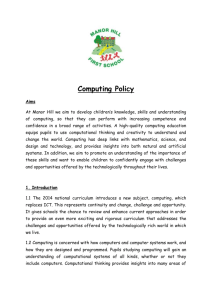


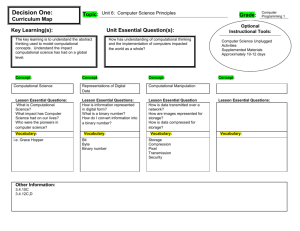
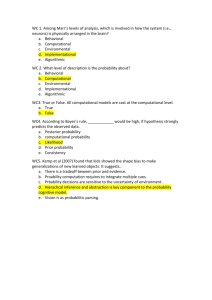
![afl_mat[1]](http://s2.studylib.net/store/data/005387843_1-8371eaaba182de7da429cb4369cd28fc-300x300.png)

